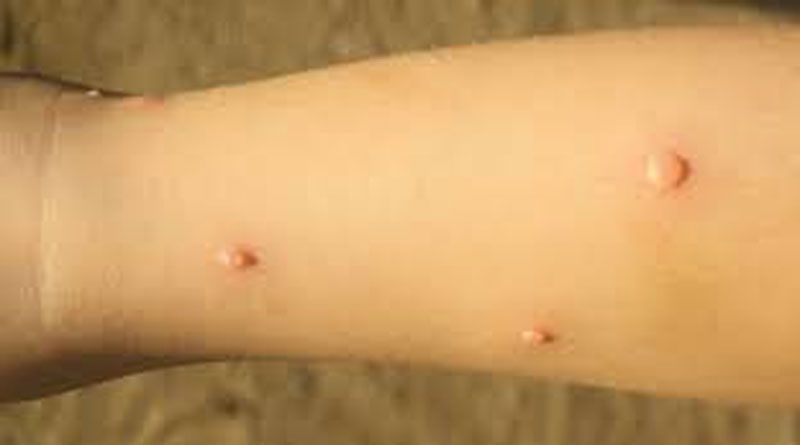Chickenpox, caused by the varicella-zoster virus, is a highly contagious infection very common in children all over the world. It is symptomized by the development of an itchy rash all over the body, usually with small blisters filled with fluid. Generally, for healthy children, the disease is mild, however, in some cases, there can be complications like pneumonia, encephalitis, dehydration, toxic shock syndrome, etc. that will need to be treated aggressively. Children can be protected effectively by a vaccine.
Symptoms of Chickenpox
You can contract chickenpox if you come in contact directly with someone else’s rash or if you inhale the droplets in the air when an infected person sneezes or coughs. It takes around 21 days for the rash to show after you have been exposed to the virus and lasts for around 5-10 days. Typically, one or two days before the rash appears, you may develop fever, have a headache, lose your appetite, and feel tired and generally unwell. When the rash appears, you will usually have pink or red bumps on your skin that become blisters containing fluid in about a day and then break. Scabs and crusts then form over the broken blisters that heal over the next few days. However, new bumps keep on appearing even during this time so it is quite possible for you to have bumps, blisters, and scabs all over the body at the same time. You remain highly infectious to others from around two days before the rash appears up to the time all the blisters have formed scabs.
Diagnosis
If you suspect that your child or you have got chickenpox, you should consult your doctor who will generally be able to diagnose chickenpox by a physical examination and other symptoms being experienced like shortness of breath, loss of muscle coordination, cough, vomiting, fever, stiff neck, etc.The doctor may choose to refer you to a lab for a diagnostic test using a sample of the blister fluid on shop Elisa kits for confirmation.
Treatment
According to https://www.medicalnewstoday.com, there is no cure for chickenpox; however, a vaccine can prevent it. If you have become infected, the doctor will treat you symptomatically for reducing the itchiness, giving you medicines for fever and pain control, and telling you to drink lots of fluids to prevent dehydration. It is important to remember not to take any medication containing aspirin as this can cause complications. If you have mouth sores, you may be advised to have sugar-free popsicles to get relief. You should avoid spicy or salty foods to avoid irritating your mouth. Lukewarm soup may be the ideal food if there is any pain when chewing. Skin itchiness, which is a major issue, can be reduced by applying calamine lotion or with an oatmeal bath. Wearing loose clothing and resisting the tendency to scratch is helpful. You may be prescribed an antiviral medicine in case the diagnosis has been made early.
Conclusion
Chickenpox is entirely preventable by taking the chickenpox (varicella) vaccine, which according to the CDC gives complete protection to nearly 98% of the people who receive both the recommended doses. Even if you do become infected after taking the vaccine, the severity will be much less.
Karen is a Veterinary Expert. She loves to share her tips to save the animals. She arrange many seminars to aware the people about animals diseases.

